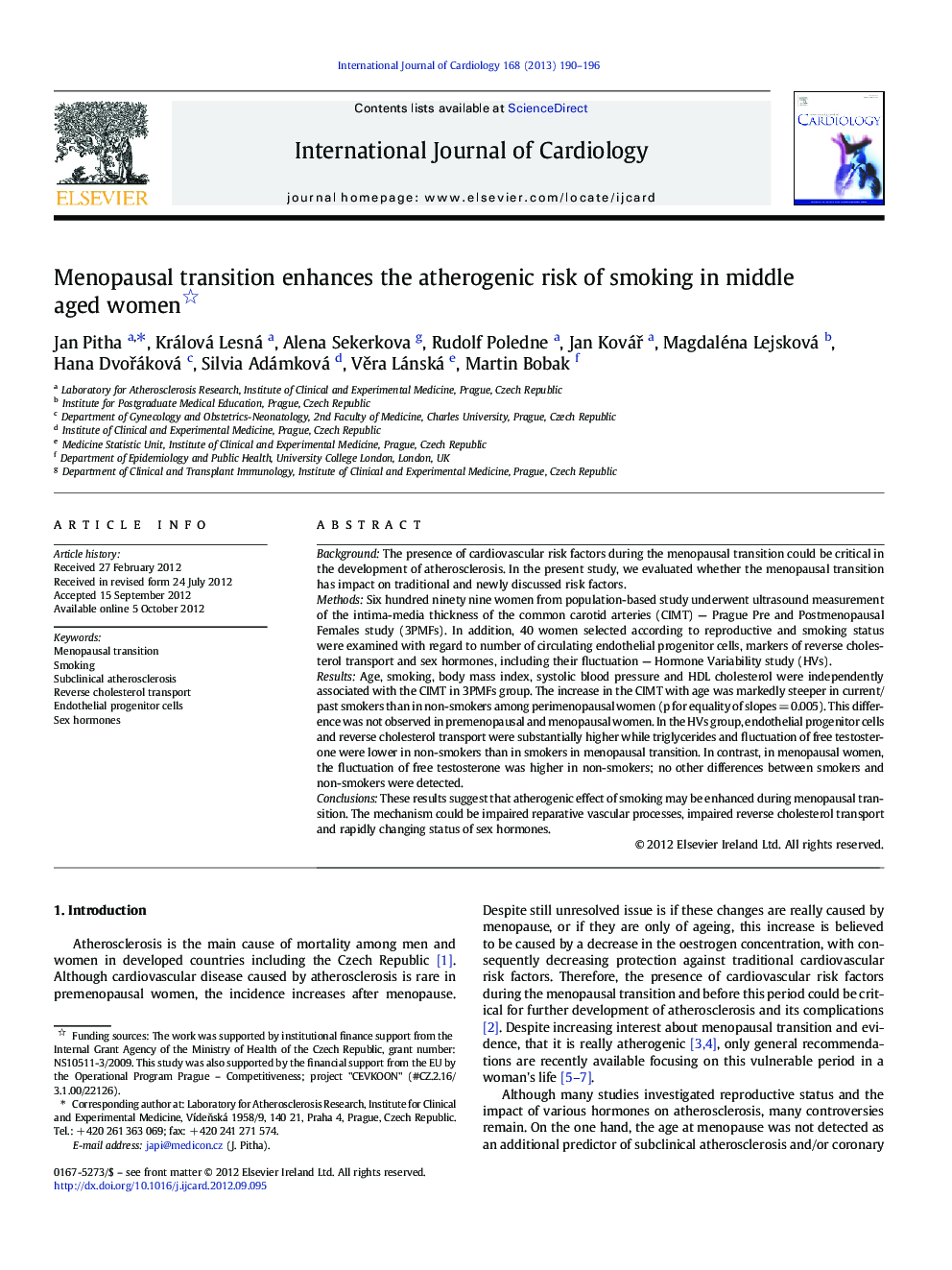| Article ID | Journal | Published Year | Pages | File Type |
|---|---|---|---|---|
| 5976611 | International Journal of Cardiology | 2013 | 7 Pages |
BackgroundThe presence of cardiovascular risk factors during the menopausal transition could be critical in the development of atherosclerosis. In the present study, we evaluated whether the menopausal transition has impact on traditional and newly discussed risk factors.MethodsSix hundred ninety nine women from population-based study underwent ultrasound measurement of the intima-media thickness of the common carotid arteries (CIMT) - Prague Pre and Postmenopausal Females study (3PMFs). In addition, 40 women selected according to reproductive and smoking status were examined with regard to number of circulating endothelial progenitor cells, markers of reverse cholesterol transport and sex hormones, including their fluctuation - Hormone Variability study (HVs).ResultsAge, smoking, body mass index, systolic blood pressure and HDL cholesterol were independently associated with the CIMT in 3PMFs group. The increase in the CIMT with age was markedly steeper in current/past smokers than in non-smokers among perimenopausal women (p for equality of slopes = 0.005). This difference was not observed in premenopausal and menopausal women. In the HVs group, endothelial progenitor cells and reverse cholesterol transport were substantially higher while triglycerides and fluctuation of free testosterone were lower in non-smokers than in smokers in menopausal transition. In contrast, in menopausal women, the fluctuation of free testosterone was higher in non-smokers; no other differences between smokers and non-smokers were detected.ConclusionsThese results suggest that atherogenic effect of smoking may be enhanced during menopausal transition. The mechanism could be impaired reparative vascular processes, impaired reverse cholesterol transport and rapidly changing status of sex hormones.
